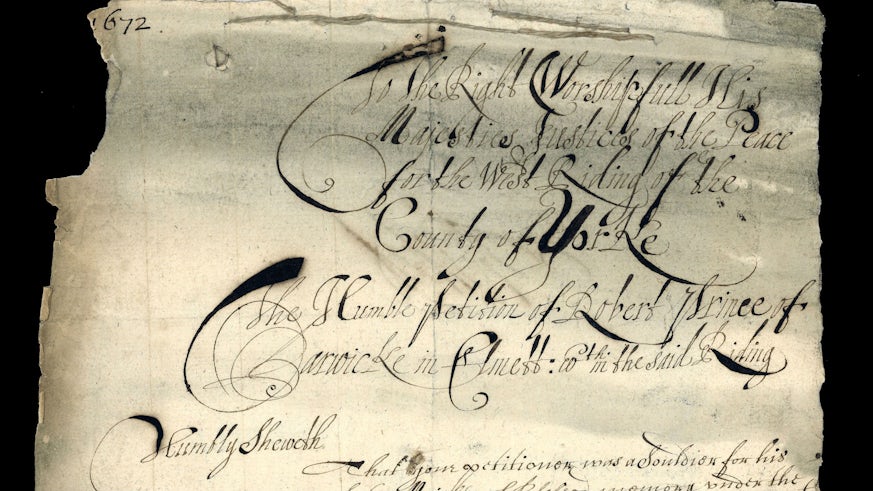Counting the cost of Britain’s most damaging conflict
27 July 2018

The human cost of the British Civil Wars is to be revealed in a major new project involving academics from Cardiff, Leicester, Nottingham and Southampton universities.
Funded by the Arts and Humanities Research Council, ‘Civil War Petitions: Conflict, Welfare and Memory during and after the English Civil Wars (1642-1710)’, investigates how wounded soldiers, war widows and other bereaved family members obtained welfare support from the state in the seventeenth century.
In England and Wales, a greater proportion of the population died during the British Civil Wars (1642-1651) than the First World War. Thousands incurred terrible injuries, whilst widows, orphans and other dependants faced daily struggles to survive following bereavement.
Parliament, and later the restored monarchy, recognised that they had a duty of care to the soldiers who had been wounded or killed in their service and made funds available to support wounded soldiers or their bereaved families. Veterans, widows and orphans were entitled to petition for pensions and gratuities from the state. These petitions, which are scattered through archives across the country, are at the core of the project’s research.
In Wales, two substantial caches of soldiers and widows petitions from the Civil Wars come from Denbighshire and Caernarvonshire in north Wales. Dr Lloyd Bowen, based in Cardiff University’s School of History and Archaeology is researching, transcribing and interpreting the Welsh material, as well as the substantial holdings from English counties such as Cheshire and Lancashire.
Dr Bowen, who has already started the research said: “The project has already produced some significant discoveries in the Wales. For the county of Denbighshire we have already located over 300 petitions from men and women seeking money for support and disability relief, as well as a huge amount of financial information about how this money was spent. Such material will provide significant new insights into the impact of the Civil Wars among ordinary men and women.”
As well as looking at recipients of state support, the project also examines how those who managed welfare systems responded to the strain of supporting thousands of soldiers and civilians, often with limited budgets. The relationship between relief provision, political partisanship and contested memories of conflict forms a key area of investigation.
The Civil War Petitions website will provide images and transcriptions of the petitions submitted by victims of the conflict for financial aid, alongside certificates of support issued by medical practitioners and military commanders; it will also include records of the thousands of payments which were made. This archival material will be released on the website at regular intervals throughout the course of the project.
Future development of the website will include an educational section for schools, and Civil War Petitions will also be supporting a series of annual teachers’ workshops at the National Civil War Centre.
The project will run until June 2021.
Share this story
The School allows the brightest and best to explore and share their passion for past societies and religious beliefs, from prehistory to the present day.


